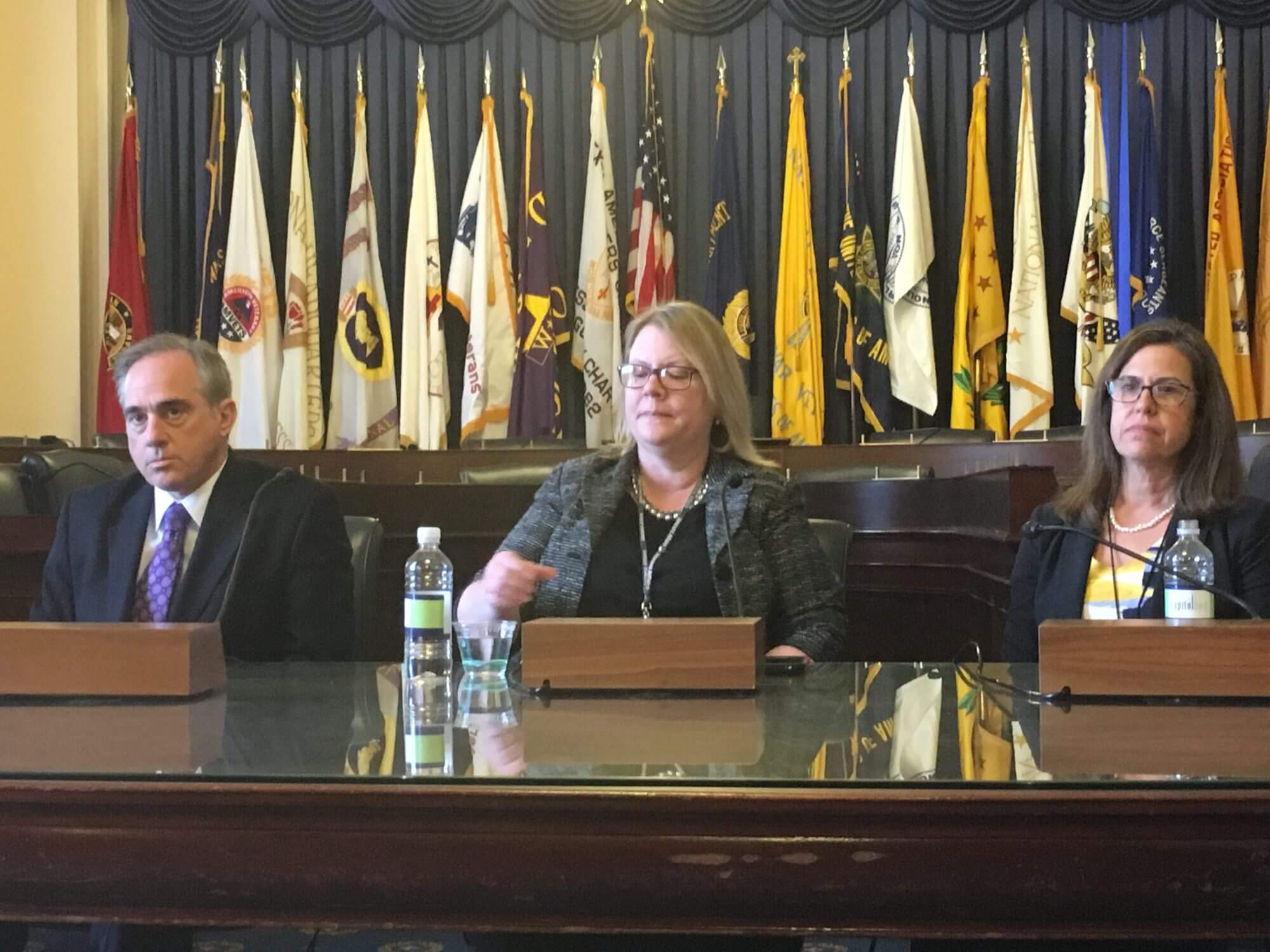WASHINGTON — Health research on women veterans needs to focus much more on gender-based disparities in care that often lead to women getting a lower quality of care than men, the head of a Department of Veterans Affairs program on women’s health said Monday.
Research into the health issues that affect women veterans increased in the past decade, but nearly 70 percent was focused on post-traumatic stress disorder and mental trauma related military sexual assaults, according to Elizabeth Yano, director of the Veteran Affairs Women’s Health Research Consortium.
“Women veterans are not just about their mental health,” Yano said during the Capitol Hill briefing.
Yano said that gender differences exist for a variety of health problems that affect veterans, including PTSD, heart problems and alcohol and substance abuse treatments, but treatments are generally the same and geared toward what works for men. The VA Women’s Health Research Consortium is part of a research initiative launched in 2010 to address gender-based disparities in the care received by women veterans.
In addition to gender-specific treatments, the consortium’s research showed that VA primary care clinics often provided women with worse health care than clinics just for women, Yano said. However, it also showed that hiring a designated women’s health provider at a primary care clinic creates the same quality of care as at a women-only clinic, she said.
“This is not about women wanting to see women doctors,” Yano said. “This is about the proficiency of the care provided.”
The VA has requested $515 million in the 2017 budget for women-specific medical care.
Every veteran medical center and 90 percent of community outpatient clinics had designated women’s health providers by 2015, according to testimony given by VA consultant Dr. Patricia Hayes last year at a Senate veterans’ affairs committee hearing.
Women comprise an increasing segment of our veteran population, with recent VA statistics showing that women make up nearly 12 percent of veterans from the wars in Iraq and Afghanistan — with the VA estimating nearly 15 percent of veterans will be women by 2035. More than half of the women who served in Iraq and Afghanistan have used the VA health care system — roughly 300,000 women veterans were enrolled as of 2009.
VA Health Undersecretary Dr. David Shulkin said his agency’s research into women’s health issues has already begun to have an impact, citing the national roll-out of a PTSD treatment shown to be effective for women.
“The VA believes in putting (its research) all back into practice,” he said.

